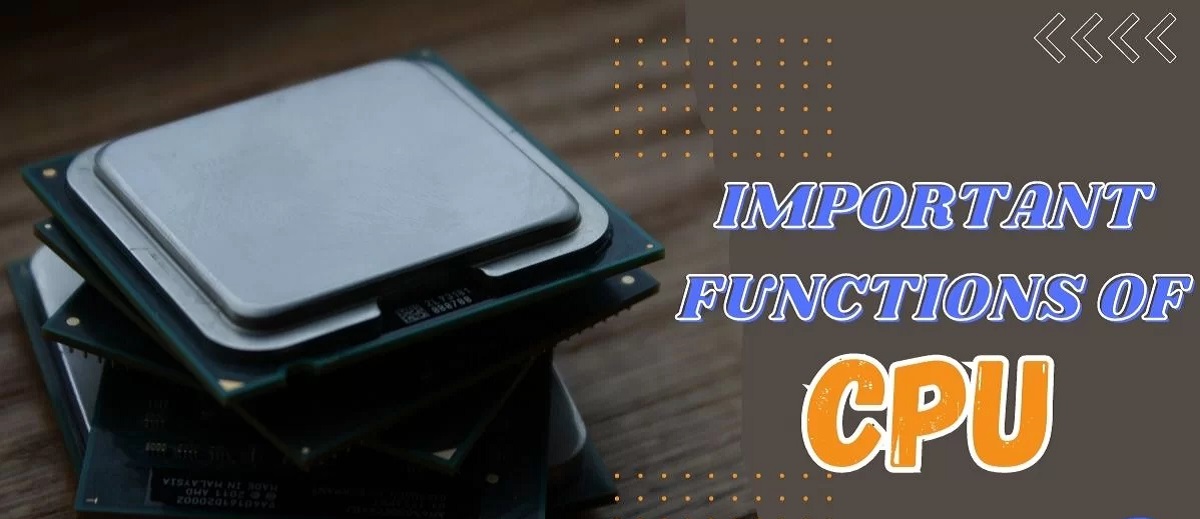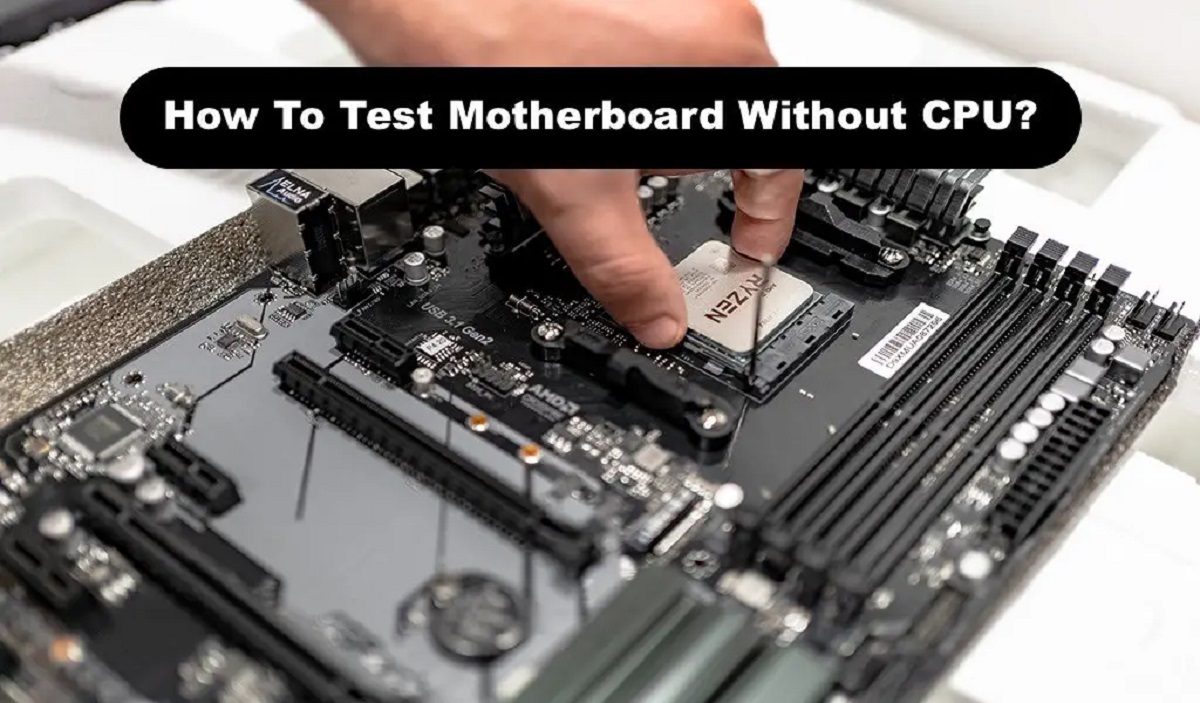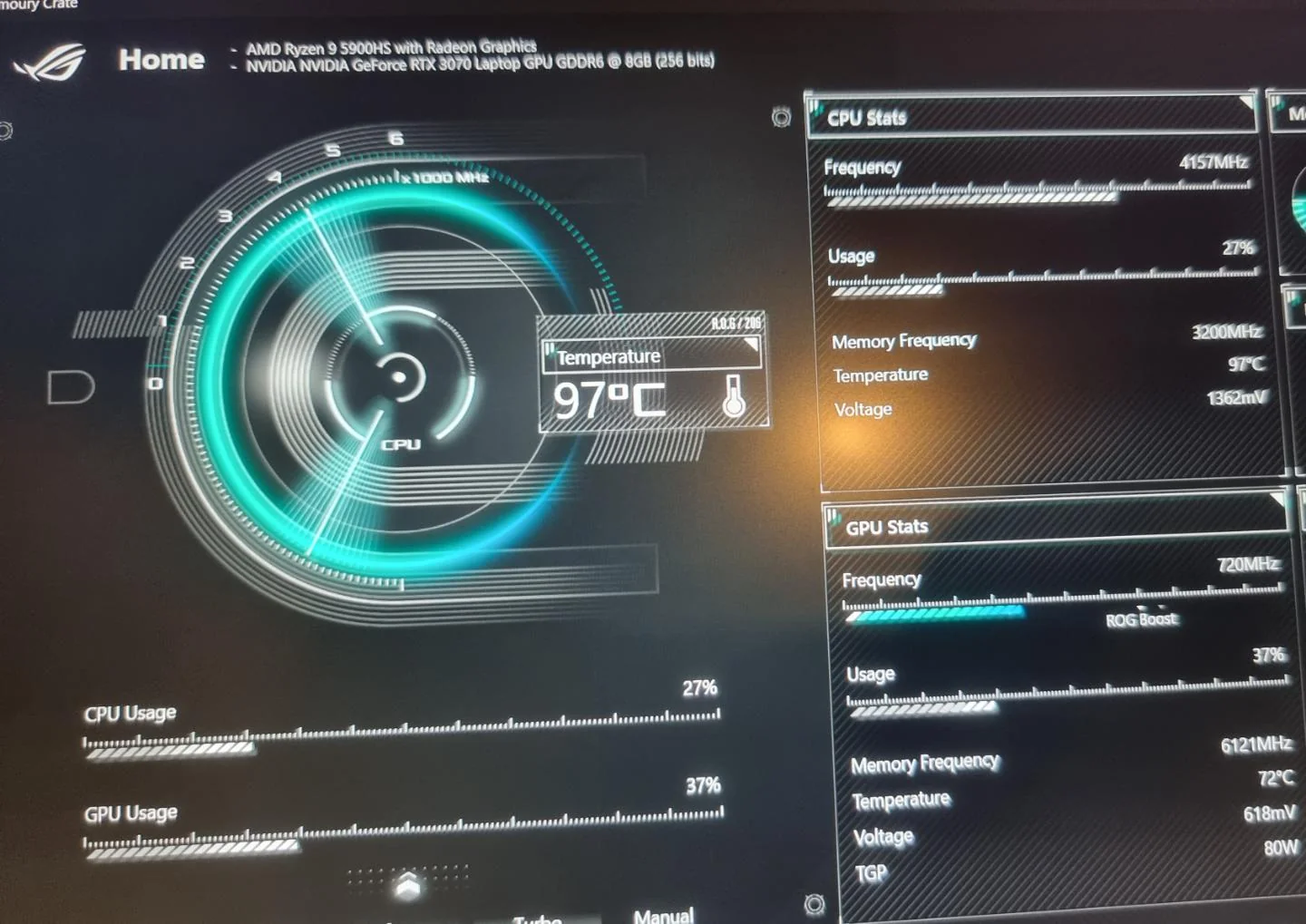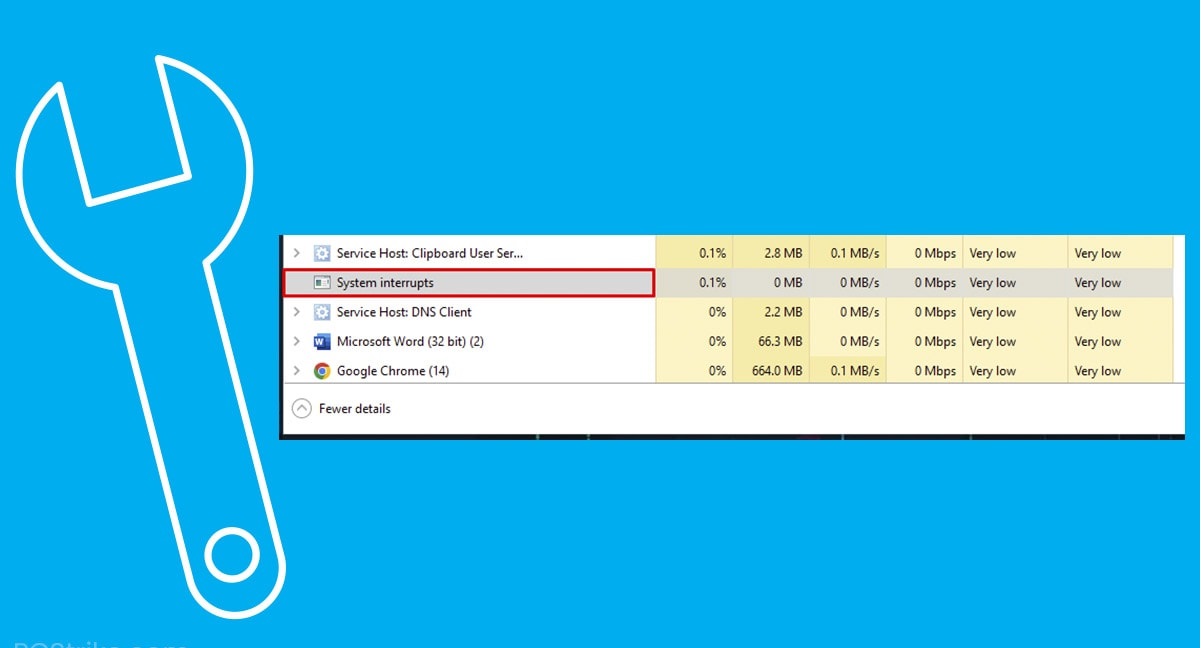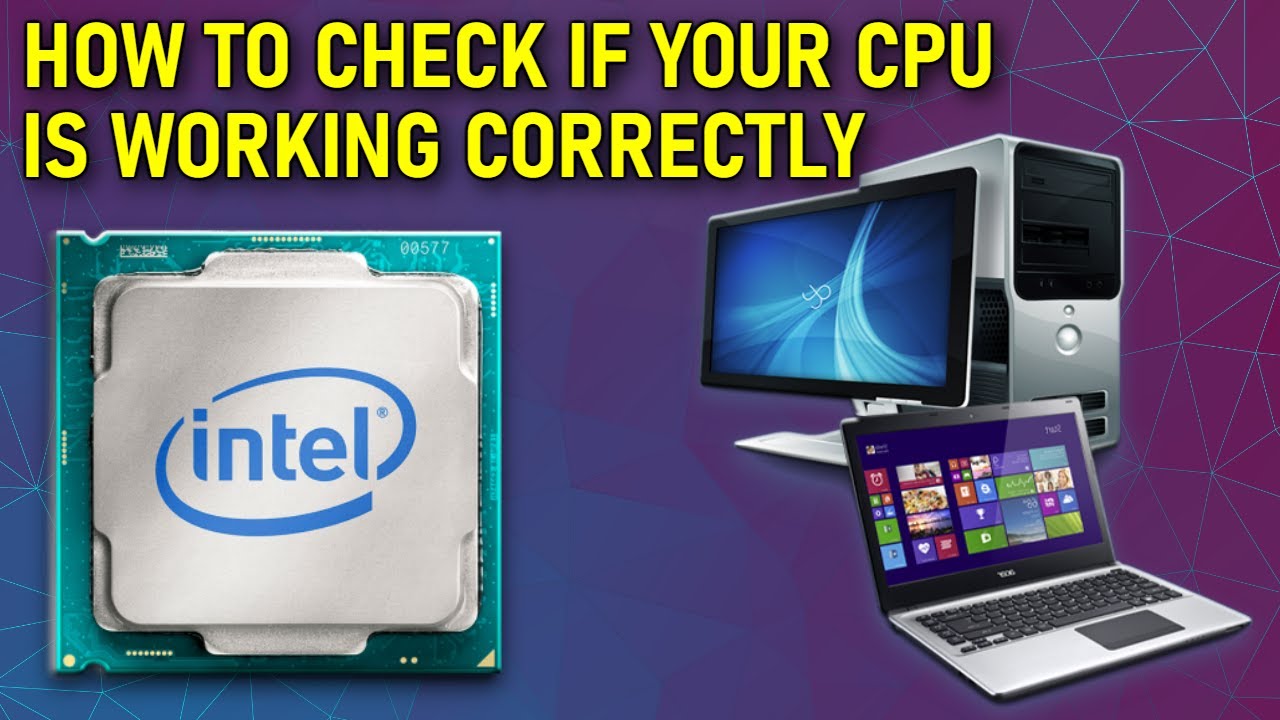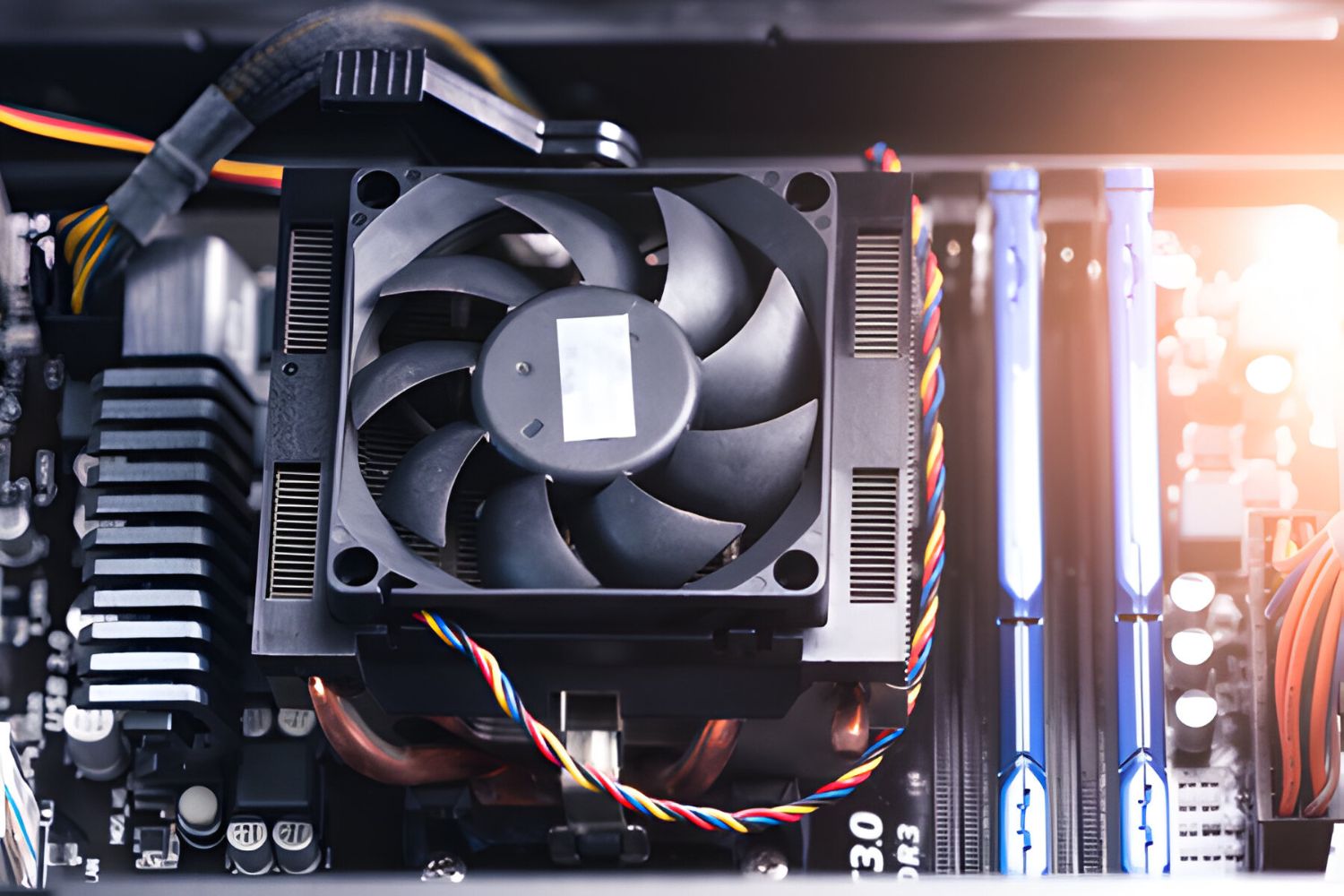Introduction
Are you curious about the inner workings of your computer? Have you ever wondered why the CPU (Central Processing Unit) is such an important component? In this article, we will explore the critical role that the CPU plays in a computer system and why it is considered the brain of the entire setup.
Computers have become an essential part of our daily lives, from smartphones to laptops and desktops. These devices perform complex tasks, communicate with other devices, and run various software applications. But at the core of every computer system lies the CPU, which is responsible for executing instructions, performing calculations, and managing the flow of data.
The CPU acts as a control center, coordinating and managing the operations of all the hardware and software components within a computer system. It is responsible for interpreting and executing instructions from the operating system and applications, and then carrying out tasks accordingly. Without a capable CPU, your computer would be incapable of performing even the simplest tasks.
In simple terms, the CPU can be likened to the conductor of an orchestra. It directs and coordinates all the musicians (components) to play harmoniously together, ensuring the smooth execution of tasks. This seamless coordination is crucial for delivering optimal performance and speed in your computer system.
Throughout this article, we will examine the significance of the CPU in enhancing overall system performance, its role in comparison to other components, factors that can affect CPU performance, and tips for selecting the right CPU for your specific needs. By the end, you will have a better understanding of the importance of the CPU and its impact on your computer’s functionality.
What is a CPU?
Before diving into the significance of the CPU, let’s first understand what it actually is. CPU stands for Central Processing Unit, which is the primary component responsible for executing instructions in a computer system. It is often referred to as the “brain” or “heart” of the computer.
The CPU is a microchip that is located on the motherboard of a computer. It consists of several key components, including the control unit, the arithmetic logic unit (ALU), and registers. The control unit fetches program instructions from the computer’s memory, decodes them, and then coordinates the execution of these instructions by sending signals to other components.
The ALU is responsible for performing mathematical and logical operations, such as addition, subtraction, multiplication, and comparison. It is the component that carries out the actual calculations and manipulations of data. The registers, on the other hand, are small storage units within the CPU that hold data temporarily during processing.
The CPU operates based on the principles of the Von Neumann architecture, which states that the CPU should have direct access to both program instructions and data. This allows it to fetch and execute instructions, process data, and store results back in the memory.
Modern CPUs are designed to be extremely fast and efficient. They are composed of multiple cores, each capable of executing instructions independently. This enables them to handle multiple tasks simultaneously, improving overall system performance and multitasking capabilities. In addition, CPUs have cache memory, which is a small and fast memory that stores frequently accessed data for quick retrieval, further boosting processing speed.
In summary, the CPU is the central processing unit of a computer system, responsible for executing program instructions, performing calculations, and managing the flow of data. It is a complex component with its own set of sub-components, all working together to ensure the smooth operation of the computer. Now that we have a basic understanding of what a CPU is, let’s explore its crucial role in a computer system.
The Role of the CPU in a Computer System
The CPU plays a vital role in the functioning of a computer system. It acts as the central processing unit, responsible for executing program instructions and managing all other hardware and software components. Without the CPU, your computer would be nothing more than an inert collection of circuits and components.
One of the main functions of the CPU is to fetch program instructions from the computer’s memory. These instructions are coded in a language that the CPU can understand, and they tell the CPU what tasks it needs to perform. The CPU then decodes and executes these instructions, carrying out the necessary calculations and operations.
The CPU also manages the flow of data within the computer system. It retrieves data from the memory, processes it, and then stores the results back in the memory. This data can include text, numbers, images, and any other form of information that the computer needs to work with. The CPU ensures that the data is processed accurately and in a timely manner.
In addition, the CPU acts as the control center of the computer system. It coordinates the activities of all the other hardware components, ensuring that they work together seamlessly. It manages the input and output devices, such as the keyboard, mouse, and monitor, allowing you to interact with the computer. It also communicates with the storage devices, such as the hard drive or solid-state drive, to read and write data.
Furthermore, the CPU plays a crucial role in multitasking. It allows your computer to run multiple programs simultaneously by rapidly switching between them. The CPU allocates resources and time slices to each program, ensuring that they all get a fair share of the system’s processing power. This enables you to browse the internet, stream videos, listen to music, and work on documents all at the same time.
Overall, the CPU is the heart of a computer system, responsible for executing instructions, managing data, coordinating hardware components, and enabling multitasking. Its role is indispensable and directly impacts the performance and functionality of the computer. In the next section, we will explore why the CPU is considered the most important component in terms of performance and speed.
The Importance of the CPU in Performance and Speed
When it comes to the performance and speed of a computer system, the CPU plays a crucial role. It is often considered the most important component in determining how fast and efficient your computer can perform tasks. The capabilities and quality of the CPU directly impact the overall user experience.
The speed of a CPU is measured in terms of clock speed, which represents the number of cycles the CPU can execute per second. A higher clock speed means that the CPU can process more instructions in a given amount of time, resulting in faster computations and operations. However, it’s important to note that clock speed alone is not the sole determinant of performance.
The efficiency of the CPU also depends on its architecture, number of cores, cache size, and other factors. A CPU with multiple cores can execute instructions in parallel, which improves performance in multitasking scenarios where multiple programs are running simultaneously. Additionally, a larger cache memory allows the CPU to retrieve frequently accessed data quickly, reducing the time it takes to fetch and process information.
The performance of the CPU directly affects various aspects of computer usage. For instance, a powerful CPU can handle resource-intensive tasks such as video editing, 3D rendering, and gaming without struggling, resulting in smooth and lag-free performance. On the other hand, a sluggish CPU may cause delays and reduce the responsiveness of your computer, leading to frustrating experiences.
The CPU also has a significant impact on the speed at which software applications run. It influences the execution time of complex algorithms, calculations, and data processing tasks. A faster CPU can process instructions more quickly, resulting in faster application loading times, quicker responses to user inputs, and smoother overall performance.
Additionally, the CPU is responsible for running operating system tasks and managing system resources. A powerful CPU can multitask efficiently, allowing you to switch between applications seamlessly and quickly. It ensures that your computer can handle multiple processes simultaneously without a noticeable impact on performance.
In summary, the CPU is of utmost importance in determining the performance and speed of a computer system. It impacts the overall user experience, application execution times, multitasking capabilities, and system responsiveness. Investing in a high-quality and efficient CPU is crucial if you want to experience the full potential of your computer system. In the next section, we will explore how the CPU compares to other components in terms of importance.
CPU vs. Other Components: Is the CPU the Most Important?
When it comes to the importance of computer components, the CPU often takes the spotlight. However, it is essential to consider the role and significance of other components in order to determine the overall hierarchy of importance within a computer system.
While the CPU serves as the central processing unit and plays a critical role in executing instructions, other components also contribute to the overall performance and functionality of a computer.
One such component is the memory, which includes RAM (Random Access Memory) and storage devices such as hard drives or solid-state drives (SSDs). Memory is responsible for storing and retrieving data and instructions that the CPU needs to process. Insufficient memory can bottleneck CPU performance, as it limits the amount of data that can be accessed and processed quickly.
Graphics processing units (GPUs) are another important component, especially for those who engage in graphics-intensive activities such as gaming or video editing. GPUs specialize in handling complex graphics calculations, offloading the task from the CPU and providing faster rendering and smoother gameplay.
The motherboard is the backbone of a computer, connecting and coordinating various components, including the CPU, memory, and expansion slots. A high-quality motherboard with excellent connectivity options and proper component support can optimize the overall performance of the CPU and other hardware components.
Power supplies, cooling systems, and fans also deserve attention. An efficient power supply ensures stable and consistent power delivery to all components, while cooling systems and fans prevent overheating, which can negatively impact the performance and lifespan of the CPU and other components.
While the CPU is undoubtedly critical, it would be unfair to overlook the importance of these other components. Each component plays a specific role in the overall functionality and performance of a computer system. The performance of the CPU depends on the collective effectiveness of all components working harmoniously together.
Considering all these factors, it becomes evident that it is difficult to assign a singular importance to a specific computer component. The CPU may be the central processing unit, but it relies on the cooperative efforts of other components to function optimally. Therefore, it is fair to say that while the CPU is an integral part of the computer system, it is not the sole determinant of overall importance.
In the next section, we will explore some essential factors that can affect CPU performance, and why it is crucial to consider these factors when selecting the right CPU for your needs.
Factors Affecting CPU Performance
The performance of a CPU can be influenced by various factors, and understanding these factors is crucial when selecting the right CPU for your needs. Let’s explore some of the key factors that can affect CPU performance.
Processor Architecture: The architecture of a CPU determines how it processes instructions and performs calculations. Different architectures have varying levels of efficiency and capabilities, so it’s important to consider the specific architecture of a CPU when evaluating its performance potential.
Clock Speed: The clock speed of a CPU, measured in gigahertz (GHz), indicates how many cycles the CPU can execute per second. Generally, higher clock speeds result in faster processing and better performance. However, keep in mind that other factors, such as architecture and cache size, also influence CPU performance.
Number of Cores: CPUs can come with a single core or multiple cores, with each core capable of executing instructions independently. Having multiple cores allows for better multitasking and improved performance in applications that are designed to utilize multi-threading effectively.
Cache Size: The CPU cache is a small and fast memory that stores frequently accessed data for quick retrieval. A larger cache size allows the CPU to access important data faster, reducing the time it takes to fetch and process information. This can have a significant impact on CPU performance, especially for tasks that require frequent data access.
Thermal Design Power (TDP): TDP refers to the maximum amount of heat generated by a CPU. CPUs with higher TDPs typically require better cooling solutions to prevent overheating and maintain optimal performance. It’s important to select a CPU with an appropriate TDP rating to ensure efficient and reliable operation.
Overclocking Potential: Overclocking is the process of increasing the clock speed of a CPU beyond its factory specifications to achieve higher performance. Some CPUs are designed to be easily overclocked, offering enthusiasts the option to push the CPU beyond its stock performance levels. However, it’s important to note that overclocking may void warranties and require enhanced cooling solutions.
Compatibility with Other Components: The CPU must be compatible with other components in your computer system, such as the motherboard and memory. Make sure to check the compatibility requirements and specifications before choosing a CPU to ensure seamless integration and optimal performance.
Overall, these factors can greatly impact the performance and capabilities of a CPU. Understanding these factors and considering them when selecting a CPU can help you make an informed decision and ensure that you choose the right CPU for your specific needs. In the next section, we will provide some tips on how to choose the right CPU for your computer system.
How to Choose the Right CPU
Selecting the right CPU for your computer system is crucial to ensure optimal performance and compatibility. With a wide range of options available, it can be overwhelming to make the right choice. Here are some essential tips to consider when choosing the right CPU:
Determine Your Needs: Begin by identifying your specific computing needs. Are you a casual user, a gamer, or a content creator? Understanding the type of tasks you will be performing on your computer will help you determine the level of performance you require from your CPU.
Consider Your Budget: Set a budget for your CPU purchase. CPUs come in various price ranges, so it’s important to find a balance between your computing needs and your budget. By considering both factors, you can ensure that you get the best value for your money.
Research Performance Metrics: Look up benchmark tests and reviews to assess the performance of different CPUs. Pay attention to factors such as clock speed, number of cores, cache size, and performance in specific tasks that are important to you. This research will help you narrow down the options to CPUs that meet your performance requirements.
Consider Future Proofing: Consider the longevity of the CPU you plan to purchase. While it’s impossible to predict future technological advancements, you can aim for a CPU that offers a good balance between current performance and potential for future upgrades. Look for a CPU that has a socket and chipset that will support future generations of CPUs without the need for an entire system overhaul.
Check Compatibility: Ensure that the CPU you choose is compatible with your motherboard and other components. Check the socket type and chipset requirements of the CPU to verify compatibility. Additionally, make sure that your power supply can handle the power requirements of the CPU.
Consider Cooling Needs: Different CPUs have different thermal profiles, which will influence the cooling requirements. If you plan to overclock or if you select a CPU with a high TDP, ensure that you have adequate cooling solutions in place to prevent overheating and maintain stable performance.
Compare Prices: Once you have identified a few potential CPUs, compare prices from different retailers. Look for discounts, promotions, or bundle deals that may be available. Remember to consider after-sales support and warranties as well when comparing prices.
By considering these tips and conducting thorough research, you can confidently choose the right CPU for your computer system that aligns with your budget, performance requirements, and future upgrade plans. Taking the time to make an informed decision will ensure a smooth and efficient computing experience.
Conclusion
In conclusion, the CPU is an integral component of a computer system, serving as the brain that executes program instructions and manages the flow of data. Its importance in determining the performance and speed of a computer cannot be overstated. However, it is important to recognize that the CPU does not work in isolation, but rather collaborates with other components to ensure optimal functionality.
While the CPU plays a central role, components such as memory, graphics cards, motherboards, and power supplies all contribute to the overall performance and efficiency of a computer system. Each component has its own significance and must work together seamlessly to achieve maximum performance.
When selecting a CPU, factors such as clock speed, number of cores, cache size, and compatibility with other components should be considered. It is essential to understand your specific computing needs and budget to determine the right CPU for your requirements.
By carefully considering these factors, you can choose a CPU that not only meets your immediate needs but also provides potential for future upgrades. It is also important to ensure that you have adequate cooling solutions in place to maintain optimal performance and prevent overheating.
In summary, the CPU is a critical component that significantly impacts the performance and functionality of a computer system. It is the central processing unit that coordinates and executes instructions, manages data flow, and enables multitasking. However, it is just one piece of the puzzle, and the overall performance depends on the collaborative efforts of all components working together harmoniously.
So, next time you use your computer, remember to appreciate the essential role of the CPU and the multitude of other components that contribute to the seamless operation of your system. Choose wisely, and enjoy the power and efficiency that a well-chosen CPU brings to your computing experience.







